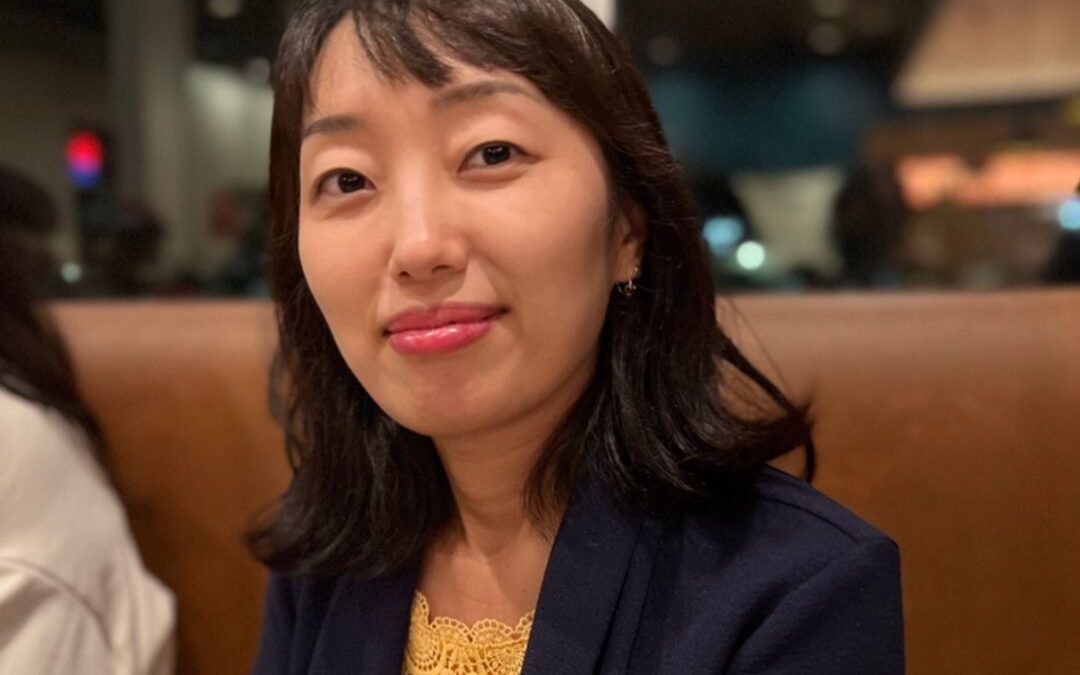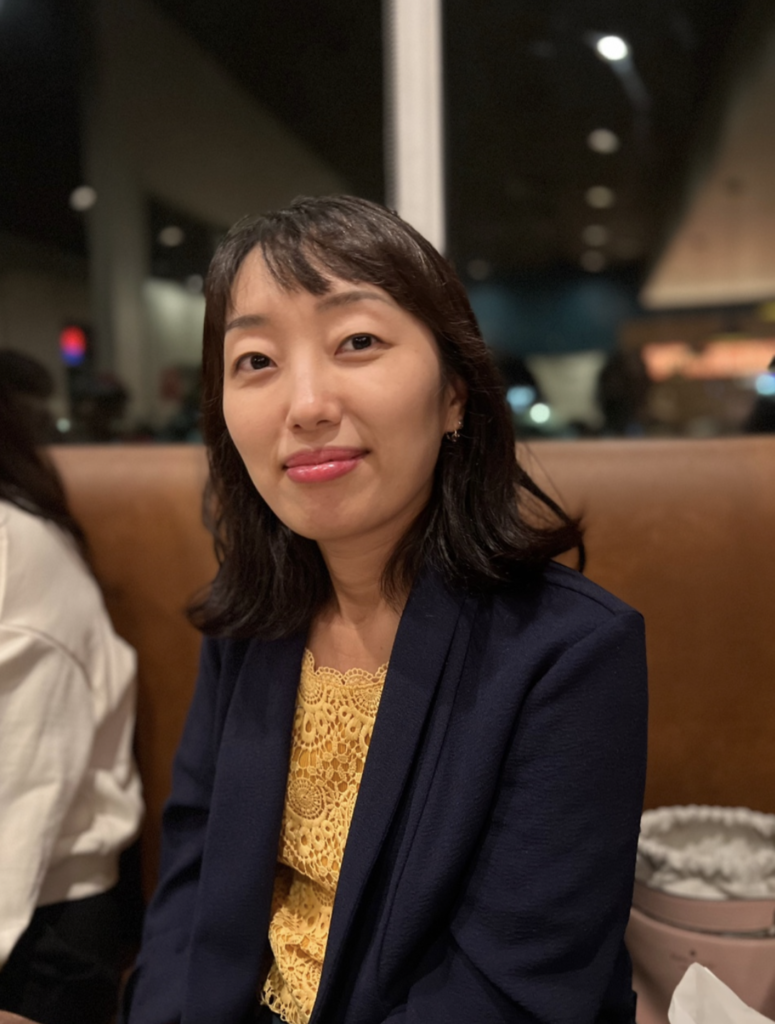
![]()

Hyunju Kim
Korean Language Program Teacher
PROFILE:
Hyunju Kim is our newest teacher in the Korean Language Program. Hyunju teaches at the Tri-Valley Korean School and has been teaching for four years, mainly to second generation Korean Americans. She is currently also preparing to become a public school teacher in Korean subjects. As our newest teacher, she is looking forward not only teaching Korean, but introducing Korean culture to others.
What inspired you to become a Korean teacher?
I’ve always dreamed of becoming a Korean language teacher while living in Korea, but I gave my dream up because I couldn’t see myself achieving it after moving to the United States. Therefore, I ended up majoring in fashion, which is a totally different field. I almost forgot about my original dream until I tried to teach my own kids Korean. Teaching my kids Korean was difficult because they were born in the U.S. and grew up speaking English. So, I started to search for various ways to teach them. I soon realized that there are many ways to teach Korean/Korean culture. Moreover, many non-Koreans recently started to want to learn about Korea’s culture. As a result, I started to reach for simple yet effective ways to teach Hangeul to non-Koreans. I am now aspiring to achieve my unaccomplished dream from long ago.
What do you think is the key to success when learning Korean?
No matter what language, the key to success is in being able to fully understand its grammar and vocabulary. Furthermore, it’s essential that you know a numerous number of words in the language. Especially in Korean, there are many cases where the feeling of a single word can change depending on how you use it. Knowing various terms and when and how they are used is part of the key to learning and understanding Korean. This is the same for anyone who wants to learn a new language, not just Korean.
What do you think students struggle the most when it comes to learning Korean? Do you have any advice on how to overcome that?
Writing with correct spelling and grammar is probably the hardest struggle. Even if you can speak and listen to a certain extent, it is difficult to express the words accurately in writing with correct spelling and spacing. It may sound obvious, but it’s essential to practice writing often. Doing something consistently everyday may not sound like much, but it’s the hardest thing to do.
Do you have a favorite Korean phrase or word?
When thinking about this question, the term ‘우리’ comes to mind. It is interpreted as ‘we’, or ‘us’. ‘우리’ is a common word used very often while speaking, but I think this is a term that non-Koreans may not grasp the concept of so easily. For example, when referring to the country, Korean speakers will naturally say ‘our country’, not just ‘the country’. ‘Our school’, not just ‘the school’. This brings me to wonder if we somehow have a natural bond of being together like this—people who care about each other and live together without any disputes. We can be together to easily learn Korean instead of learning by ourselves with great difficulty.
What are you most looking forward to as a teacher with KCI?
I may have been teaching second-generation Korean children, but this is my first opportunity to teach non-Koreans. The expectations are high, as well as the excitement level. I hope anybody taught by me, even if it’s just for half a semester, can comprehend and grasp the concept of Korea’s culture, not just its language. I want everybody who learns Korean to live knowing just how beautiful of a country Korea is.
We’re excited to have Hyunju join our KLP team! If you are interested in learning with Hyunju, check out our classes and schedule.
